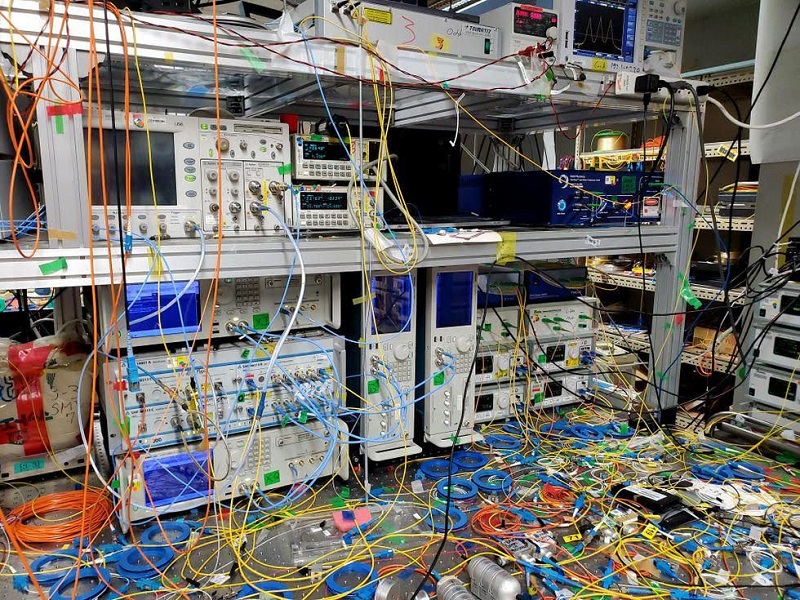The feat was made possible using optical fibres that carry data using light as opposed to normal copper cables.
July 18, 2021

Researchers in Japan have demonstrated an internet speed of 319 terabits per second, setting a world record. A team of researchers at Japan’s National Institute of Information and Communications Technology (NICT) used advanced fibre optic technology with a 4-core optical fibre of standard outer diameter of 0.125 mm to perform the speed test, breaking the previous record of 178 Tb/s set by engineers in Japan and Britain a year ago.
To achieve the record speed, the researchers constructed a recirculating transmission loop experimental set-up by combining two kinds of rare-earth-doped fibre amplifiers. The combination of erbium and thulium doped-fibre amplifiers and distributed Raman amplification enabled a long-distance transmission over 3,001 km.
Watch: Wire & Cable India Fortnightly News Roundup.
“The 4-core MCF with standard cladding diameter is attractive for early adoption of SDM fibers in high-throughput, long-distance links, since it is compatible with conventional cable infrastructure and expected to have mechanical reliability comparable to single-mode fibres,” the Japanese research institute said in a paper published earlier this month.
The research paper was published at the International Conference on Optical Fibre Communication which was held virtually from June 6-11.
Also Read: AMPeers – Amping Up the Delivery of Superconducting Wires.
NICT stressed that it was crucial to demonstrate how new fibres can meet the demand of apparent “explosive increase” from new data services. The research institute further noted that the result from the latest internet speed test will help the realization of new communication systems that can support the new “bandwidth-hungry services,” adding that they will continue to explore ways to further increase the transmission capacity of “low-core-count multi-core fibres and other novel SDM fibres.”




